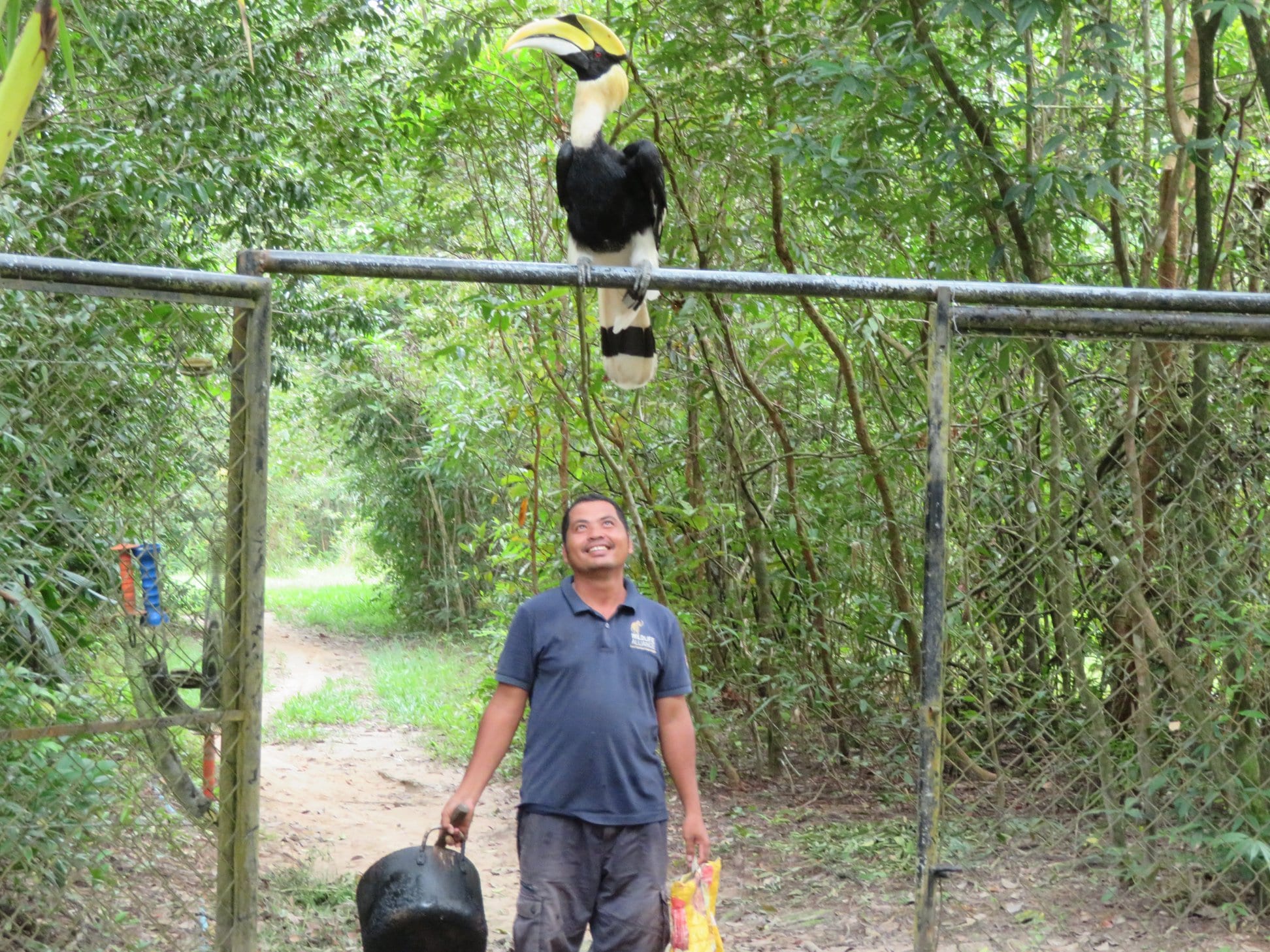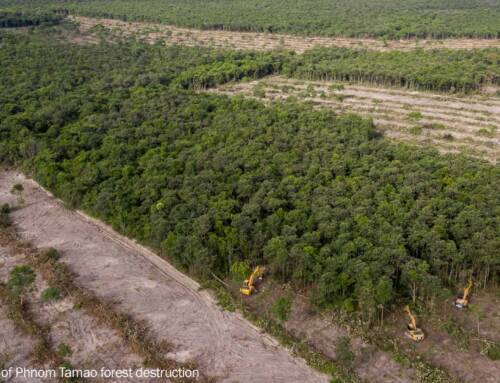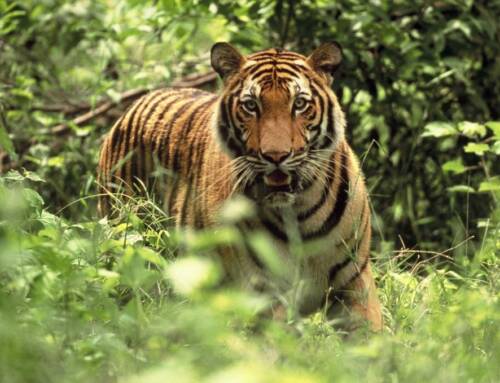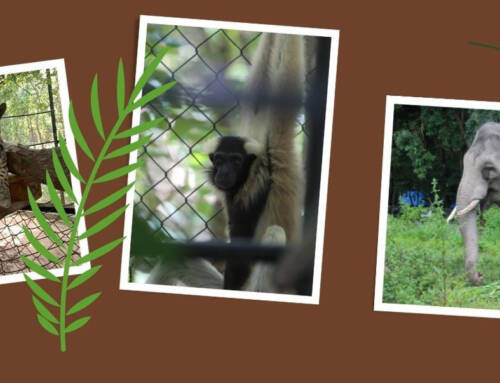When we release animals back into the wild, we usually implement a “soft release” strategy, meaning our keepers continue to provide the released animal supplemental food as they transition to the wild. Some animals never look back once they are released, while others like great hornbill (Buceros bicornis), Joa, take full advantage of the food our keepers provide them. Joa (meaning ‘sap’ or ‘resin’) was rescued as a chick by the Wildlife Rapid Rescue Team in 2016 from a market outside of the Phnom Penh and was soon taken to the Wildlife Release Station in his natural habitat in the Cardamom Rainforest where he was cared for and eventually released. Joa, seen here waiting for keeper Soeun to come back and make his breakfast after feeding the sun bears, is still a regular around camp. He visits the guest chalet area less and less but he’s never far away from the keepers’ camp and is taking the daily supplementary food provided for him. He still spends his nights close by but days freely roaming around in the forests surrounding the Station. He’s a pleasure and delight to have around for the staff and our guests and will always have food at the Station as he gradually gets used to being a wild bird!
Great hornbill enjoys a slow transition to a life in the wild
By WA Admin|2019-11-22T14:36:06-05:00November 22, 2019|Categories: Newsletter, Wildlife Care, Wildlife Release Station|Tags: Buceros bicornis, Great Hornbill, Joa, sponsor an animal, wildlife release, Wildlife Release Station|Comments Off on Great hornbill enjoys a slow transition to a life in the wild




